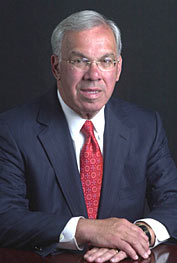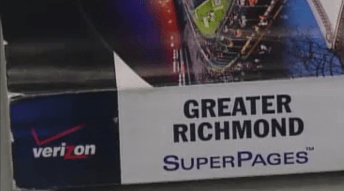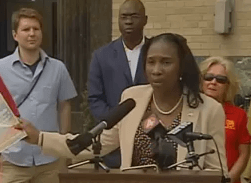
Menino
Boston Mayor Thomas Menino has problems with Comcast. The cable operator, long a dominant player in the city of Boston, has been raising basic cable prices for the last several years, and the mayor’s office has had enough. This week Menino filed a petition asking the Federal Communications Commission to give the city “emergency control” over the price of basic cable service in Boston — the only control permitted in the largely deregulated cable television marketplace.
Menino waved a study done at the behest of the city showing residents were paying substantially higher prices for the lowest level of service from Comcast. Basic Service, which includes 37 local over the air stations and a handful of shopping and public access channels costs $15.80 inside city limits — up from $9.05 in 2009. In nearby Cambridge, the same service costs $7.30 a month. What’s the difference? Cable rates are completely deregulated in the city, but smaller communities around Boston lack sufficient meaningful competition, so they are permitted by law to continue regulating rates for the lowest tier: Basic Service.
Now Menino wants those rates brought back under control for the benefit of seniors and low income residents, among the 10,000-15,000 local homes that subscribe to the economy service.
It’s just the latest challenge for Boston, which is among a few cities along the coast of the northeastern United States not benefiting from aggressive broadband and video competition between the phone and cable company. Just over 200 miles away, metropolitan New York and the bedroom communities in that state, as well as New Jersey and Connecticut, have access to super fast broadband from Verizon FiOS, Time Warner Cable, Cablevision, and Comcast — the latter predominately serving greater Philadelphia.
Boston has been bypassed for Verizon FiOS, is ignored by other potential cable competitors, and is stuck with poor-performing cable overbuilder – RCN, which has focused most of its efforts on multi-dwelling apartment and condo units in the city. The rest of Boston gets ‘take it or leave it’ service from Comcast or DSL from Verizon.
Comcast was quick to respond to Menino’s call for reregulation, noting they provide $5 senior discounts for their cable customers and offer cheaper service than the alternatives — $17.50 a month from RCN or between $30-35 for promotions from DirecTV and DISH Satellite.
Menino’s dealings with telecommunications companies in Boston have run hot and cold for years. In February, Menino appeared with Comcast senior vice president Steve Hackley to celebrate the opening of a Digital Connectors program for up to 2,800 low income households, paid for by federal stimulus grant money. Under the program, students who complete computer training courses receive discounted Comcast Internet service for $10.95 a month for the first year and $15.95 for the second year.

Boston
Menino’s office has often been a watchdog when it comes to Comcast fulfilling its franchise obligations, and the city had high hopes competition from RCN would extend a choice of cable providers to most city residents. That has not happened.
The city’s other telecommunications provider, Verizon, has been in contention with the city for several years. The trouble began in 2007 when Menino declared war on property tax exemptions for utility poles dating back to 1915, granted to telecom companies like Verizon. Four years later, that battle has culminated in Verizon literally wiring its fiber optic FiOS service around the city of Boston, refusing to deliver service inside it.
The promise of Verizon fiber has often gone unfulfilled or delayed in many larger cities, subject to bureaucratic delays not experienced in smaller communities. Some towns and villages in Massachusetts signed franchise agreements just a few months after the company came knocking.
One local official, not authorized to speak publicly on the matter, told Stop the Cap! many communities welcomed Verizon’s fiber optic initiative with open arms.
“You have to understand there is a different mentality among government officials in smaller towns than there is among larger cities,” the official tells us. “In our town of 35,000 when Verizon offered to wire competitive service in our area, we wanted to know where to sign and when they could get started.”
The official says the local government was concerned about making sure Verizon repaired any damage to local infrastructure, abided by local zoning rules, and guaranteed they would not bypass parts of the town. Negotiators also fought for funding to upgrade equipment for the community’s public access channels, but never went into the negotiations thinking about how much they could extract from the phone company.
 “In larger cities in this state, there is a definite mentality that Verizon represents a golden goose ready and willing to lay golden eggs in return for franchise agreements,” the official told us. “Maybe that is true, but when you are in a smaller town, you recognize the degree of willingness to invest capital to tear out old wires and replace them with fiber is far less here than a city like Boston, which has the potential of many more customers.”
“In larger cities in this state, there is a definite mentality that Verizon represents a golden goose ready and willing to lay golden eggs in return for franchise agreements,” the official told us. “Maybe that is true, but when you are in a smaller town, you recognize the degree of willingness to invest capital to tear out old wires and replace them with fiber is far less here than a city like Boston, which has the potential of many more customers.”
Boston, like other large cities, prepared for protracted negotiations with the phone company over the new fiber service. At the same time, Mayor Menino infuriated Verizon when he won his property tax lawsuit against the company, collecting $5 million in tax payments that one city official rubbed in.
Ronald W. Rakow, Boston’s commissioner of assessing, told the Boston Globe at the time: “We will actually be sending a bill to them for that later today,’’ Rakow said. “Don’t want to let the ink dry.’’

No Verizon FiOS for Boston
The argument over property taxes may have been the final straw for Verizon FiOS in Boston. Menino suspected as much, telling the Globe “they insinuated that we weren’t going to get it because of my position on telecommunications.’’
Even then-Verizon CEO Ivan Seidenberg warned the city during a speech at the Boston College Chief Executives’ Club of Boston “to be careful when considering new taxes or regulations.”
Verizon has since stopped expanding its FiOS service to new cities.
“We knew as the financial crisis grew we were smart to sign up earlier rather than later, because if we didn’t, we would never have the service today,” the local official tells us. “I have sympathy with local officials in every city trying to do what is best for their residents, but anyone who understands wired telecommunications should know these kinds of projects are exceedingly rare — grab them when you have the chance.”
Just a few years later, the impact of earlier decisions not to hurry competition into the city of Boston and the city’s tax policies have become clear:
- Comcast may be forced to reduce their Basic Service rate, but nothing prevents them from increasing Digital Service cable rates to make up the difference;
- RCN’s network has languished, providing competitive choice to just 15,000 local residents. Comcast serves at least 170,000;
- Verizon has no plans to offer FiOS in the city indefinitely;
- Menino’s victory claim that Verizon should pay its fair share in property taxes seems less victorious today as the phone company began passing on the new taxes to ratepayers as a “Massachusetts Property Tax Recovery Surcharge” in March, 2010.
- No other competitor has appeared on the horizon willing to take on Comcast in the city of Boston.
 WFTS-TV in Tampa launched a consumer investigation when a local customer noticed the Verizon FiOS Internet service he was paying for — 25/25Mbps — was actually only providing him with 2.88Mbps upload speeds. Even worse, both providers in the Tampa Bay area — Bright House Communications and Verizon, say actual speeds are not guaranteed, leading at least one customer to file an official complaint with the Federal Communications Commission for false advertising and misrepresentation by Verizon Communications. WFTS examines whether providers have to actually deliver the speeds they promise, or does the fine print get them off the hook, leaving you paying more than you should for Internet speeds you are not getting. (3 minutes)
WFTS-TV in Tampa launched a consumer investigation when a local customer noticed the Verizon FiOS Internet service he was paying for — 25/25Mbps — was actually only providing him with 2.88Mbps upload speeds. Even worse, both providers in the Tampa Bay area — Bright House Communications and Verizon, say actual speeds are not guaranteed, leading at least one customer to file an official complaint with the Federal Communications Commission for false advertising and misrepresentation by Verizon Communications. WFTS examines whether providers have to actually deliver the speeds they promise, or does the fine print get them off the hook, leaving you paying more than you should for Internet speeds you are not getting. (3 minutes)

 Subscribe
Subscribe






